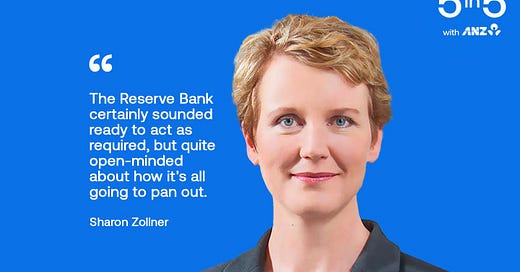Donald Trump pauses reciprocal tariffs for 90 days, unleashing a furious rally in stocks, but increases his tariff on China to 125% after China retaliates. The Reserve Bank of New Zealand cuts rates by 25 basis points as expected, as does the Reserve Bank of India. Meanwhile, the Yen is attracting safe-haven demand.
In our bonus deep dive interview, ANZ Economist Sophia Angala reviews how Australian states and territories performed at the end of last year.
5 things to know in 5 minutes:
Donald Trump has just paused his 'reciprocal tariffs' for 90 days, but has hiked the US tariff on imports from China to 125% after China retaliated overnight by lifting its tariff on US imports to 84%. US stocks jumped 7%, the US 10 year bond yield fell from as high as 4.51% to 4.39% in late trade. ANZ Economist Brian Martin says bond markets are very volatile.
The Reserve Bank of New Zealand delivered the expected 25 basis point rate cut to 3.5% yesterday amid speculation it might opt for an oversized move in response to the tariff turmoil. ANZ New Zealand Chief Economist Sharon Zollner says the RBNZ provided a degree of calm with its decision.
Sharon says there was no indication in the record of meeting that a 50 basis point cut was considered.
The Reserve Bank of India cut rates by 25 basis points to 6.0% yesterday and took up an ‘accommodative stance’ indicating more cuts are likely. ANZ Economist Dhiraj Nim says the RBI lowered its 2025 inflation outlook to below its 4% target, and also cut its growth forecast from from 6.7% to 6.5%.
Japan’s 40-year Government bond yields hit a record high yesterday partly as traders questioned whether rising economic risks would temper the Bank of Japan’s rate rises. The Yen has also been surging amid the global tensions, hitting levels against the US dollar not seen since October last year, says ANZ FX Analyst Felix Ryan.
Cheers,
Bernard
PS: Catch you tomorrow with a look at how US inflation performed in March.














